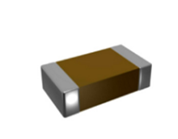In the process of capacitor R&D, acquisition, and sale, we often hear various standards or anecdotal terms, such as safety capacitors,Automotive capacitors , so what do they refer to? What are the standards? What definitions? Today we will take a look at what is a car-standard capacitor? What is a safety capacitor?
Safety capacitor
Safety capacitors, as the name suggests, are safety-certified capacitors, specially developed for communication line filtering applications to suppress interference. There are mainly safety ceramic capacitors, safety ceramic capacitors, and safety film capacitors.
Safety capacitors are designed to prevent potentially damaging or disruptive line transients and EMI from entering susceptible equipment. They are also the ideal solution for suppressing line interference at the source.
All capacitors approved by safety standards are classified as X and/or Y capacitors. Class X capacitors are primarily used in line-to-line (cross-line) applications. If the capacitor fails during this use, there is no risk of electric shock to people, but it may cause a fire. Class Y capacitors are primarily used in line-to-ground (line bypass) applications. In this use, capacitor failure may result in a risk of electric shock.

Automotive capacitor
The so-called automotive capacitors, as the name suggests, are capacitors that are suitable for automotive electronic applications. Because automobiles are extremely precise and complex components, and are closely related to life safety, the standard requirements and usage conditions of the components they comprise are also more stringent. Overall, Generally speaking, automotive capacitors must meet the following requirements:
Comply with AEC-Q200: AEC-Q200 (stress test qualification for passive components) is a car-level quality certification for passive components. AEC-Q200 certification stipulates all necessary product quality and reliability for forced components.
Long life: The lifespan of automotive capacitors is about 200 times different from that of ordinary capacitors.
Wide temperature range: The working temperature range of automotive capacitors is generally -50°C - 125°C, which is higher than that in ordinary use areas.
In addition, automotive-grade capacitors have increasingly higher demands in terms of stability, aging impact resistance, corrosion resistance, and high temperature resistance.




